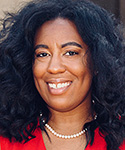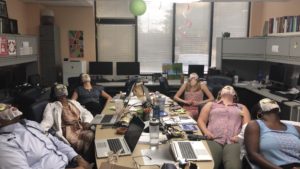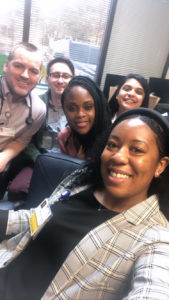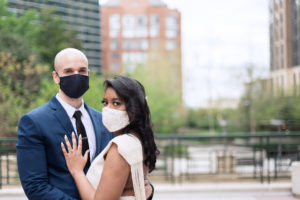July 16th, 2020
Well, Did You Learn Anything?
Allison Latimore, MD

Dr. Latimore is the Education Chief Resident at the MedStar Washington Hospital Family Residency Program in Washington, DC
When I told my friends that I was going to be the Chief of Education for my residency program, they were stunned. How can you be a chief resident as a second-year resident? Isn’t that going to be a lot of work? How can you juggle it all? These were all valid questions that I even asked myself. How am I going to plan lectures, plan my own wedding, learn how to be a senior resident, support the interns, and manage my personal life? Then, a little global pandemic was sprinkled on top. The truth is: I struggled. My wedding ended up being canceled due to the pandemic. Lectures were planned, but some slots required improvisation. There were moments where I felt so defeated, but there also were moments where I felt so accomplished. There was a time that I was faced with adversity and sought guidance from my mother. She said, “Well, did you learn anything?” My mother had an excellent point. I faced challenges this year, and I learned a lot.
-
As a chief, you are not above learning or correction
You are still a resident. You are still in this program to learn. You are still in training and will get things wrong. You might not manage a patient the way that your attending would. You might miss something. Chief does not equate to perfection. In this role, you have to be willing to lead and to be willing to be taught. You have to know when you are in over your head and when to ask for help.
-
Calendars, reminders, and planners are your best friend
Administration is a large part of the chief role. It is impossible to keep all tasks and meetings in your head. To avoid forgetting things, keep a planner or use your smart phone to your advantage. As soon as someone would give me a new task, I would immediately put a reminder in my phone.
-
Conflict resolution skills can always use development
As physicians, we get conflict resolution training often and it might seem redundant. As a chief, your colleagues will come to you about different situations. You need to know when someone actually wants advice or just an ear for listening. You should be ready to give objective advice when asked. It is hard to be completely objective when you are still in a resident role, but you have to try your best to understand the different perspectives. Even if this means disagreeing with your colleagues.
-
Things will not always go as planned
Having to cancel a wedding due to a pandemic is an extreme example, but you have to be flexible. As a chief, last minute changes will come up and you have to adapt. Be ready to be called in to cover people. Be ready to manage lecturer cancellations. Being willing to step in when things are going awry is one of the biggest parts of the job.
-
Make the most of this experience
Being a chief is an honor and a privilege. Use this opportunity to grow as a leader, a physician, and an educator. Build your resumé during this time. Attend conferences when the opportunity is available and use your administrative time wisely. Most importantly, represent your fellow residents as you would like to be represented and maintain your role as a liaison between faculty and the residents.
Do you have any tips for chief residents? Please leave some advice in the comments below.





I completely agree that I learned so much this past year through the challenges and the small (and big) wins.
Two things I would add from the AAIM Chief Residents’ conference:
(1) Think about the other side of the pancake. Whenever a resident would bring an issue forward, I would try to understand it from their perspective before making a decision.
(2) Aim for win-win negotiation. When there is a conflict, the best situation is when both parties benefit from a decision.
Cheers,
Frances
Frances,
I love the other side of the pancake! I may have to use that!
Life is everchanging and those who adapt to changing time and world, finally succeed.
Great leaders are great doctors, we are not governed by any guidelines, We have to walk in the light of our own torch!